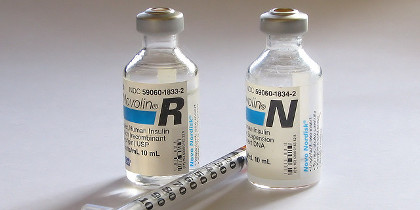
March 13, 2015, by Jackie Thompson
Careers in clinical research
By Katie Bonner, Employability Officer
Clinical research is a branch of healthcare science that determines the safety and effectiveness of medications, devices, diagnostic products and treatment regimens intended for human use. These may be used for prevention, treatment, diagnosis or for relieving symptoms of a disease. The types of products range from pills to creams, plasters to pace-makers.
All of these products need to be tested and trialled before becoming available on the market by law. Would you be willing to take a new pill without knowing the potential side effects or what it might do to your body? So across the globe there are standardised clinical research protocols that need to be adhered to before a product is allowed out into the market.
At our event Spotlight On… Contract Research, two speakers from the contract research industry, Emma Blount from PAREXEL and Carrie Barker from Worldwide Clinical Trials, spoke about their routes into their current roles, gave an overview on what research and trials is and offered some advice on how to get a foot in the door.
How do I get in?
There are a few ways to get a job in the clinical trials sector.
One route is through the big pharmaceutical companies, such as AstraZeneca and GSK, on a graduate research and development scheme. These tend to be very competitive with lots of people vying for limited spaces. These two year programmes involve rotations around different departments, some of which are not linked to the lab, and you’ll be expected to make a significant contribution to the development of life-saving medicines from day one!
Alternatively you could be working for a contract research organisation (CRO) which is an independent organisation that steps into the development process once a pharma company has identified a promising new molecule. Typically, a CRO will organise and conduct clinical trials to test the new molecule in humans. As independent companies, they offer an objective assessment of a new drug in the clinical setting and, because they partner with many companies, typically offer broader experience than if the pharma company organised the trials themselves.
If a graduate scheme with a pharma is not for you and you’re still exploring the idea of clinical trials, you might want to consider an entry level job in a CRO or other organisation. This could be a laboratory assistant or a study co-ordinator with a small to medium-sized company in your local area. Once you’ve secured a job take the opportunity to ask lots of questions about the opportunities open to you now and in the future and build your network of contacts. You’ll soon find if your transferable skills and your own personal interests fit with a role within clinical trials.
Where could I work?
There are a range of organisations that might provide opportunities in clinical trials and research. For example, are there any large hospitals in your local area or is there a hub of science-based activity where small to medium-sized enterprises (SMEs) can rent lab and office space, such as BioCity in Nottingham?
The kind of organisations that you may wish to consider include:
- pharmaceutical companies, such as Novartis and AstraZeneca)
- contract research organisations, such as Worldwide Clinical Trials and HistologiX
- technological and software companies including Medidata and PAREXEL
- biotechs, for example Absynth Biologics and Critical Pharmaceuticals
- Phase 1 trials organisations, such as Quotient Clinical and TKL Research
There are pockets of clinical research companies across the UK including the East Midlands, Slough, Maidenhead, Manchester and Cambridge.
What skills and knowledge do I need?
The world of clinical trials is incredibly varied which means your skills set will be too. The key attributes that employers will be looking for are:
- organisational skills
- attention to detail
- ability to communicate with a range of people
- patience and a level head
- diplomacy
- a willingness to learn
While a science background is not essential for all roles, if you’re looking for an opportunity to become a clinical research associate or lab technician then having a science degree is important.
Once you’ve got your foot in the door, you can use your networking skills to make contacts, express an interest in other areas and move around the company to get to the role you want.
If you’re interested in exploring your options in clinical trials and research, book an appointment with a careers adviser through My Career.
Also keep an eye out on our other Spotlight On… events coming up including:
- Spotlight On… Medical Sales on Wednesday 18 March,
- Spotlight On… Science Careers Outside the lab on Wednesday 25 March
- Spotlight On… Science and the Media on Wednesday 29 April
Source of image: The Gift of Life by Melissa Johnson

Thanks for sharing this type of post. It’s really good. Well done.